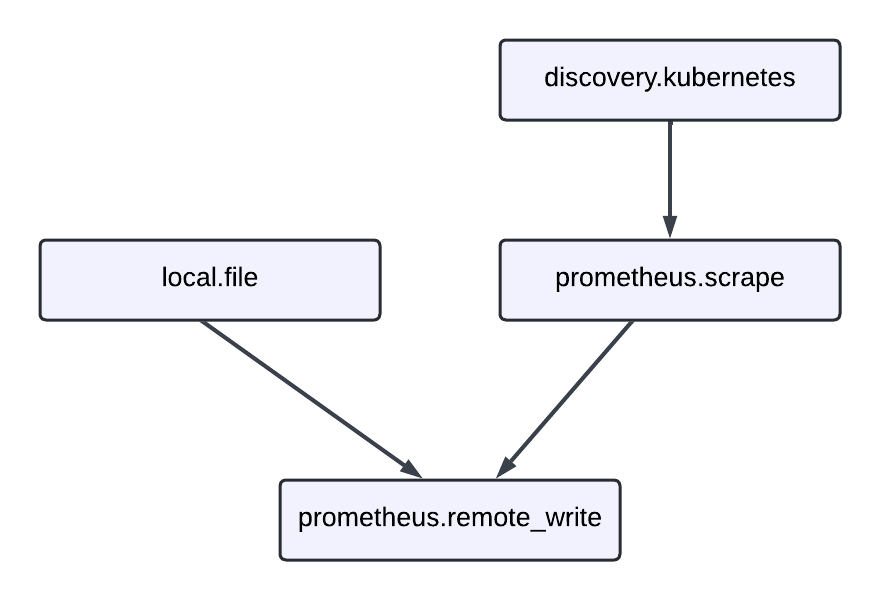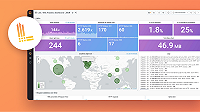Important: This documentation is about an older version. It's relevant only to the release noted, many of the features and functions have been updated or replaced. Please view the current version.
Components
Components are the building blocks of Alloy. Each component performs a single task, such as retrieving secrets or collecting Prometheus metrics.
Components consist of the following:
- Arguments: Settings that configure a component.
- Exports: Named values that a component makes available to other components.
Each component has a name that describes its responsibility.
For example, the local.file component retrieves the contents of files on disk.
You define components in the configuration file by specifying the component’s name with a user-defined label, followed by arguments to configure the component.
discovery.kubernetes "pods" {
role = "pod"
}
discovery.kubernetes "nodes" {
role = "node"
}You reference components by combining their name with their label.
For example, you can reference a local.file component labeled foo as local.file.foo.
The combination of a component’s name and label must be unique within the configuration file. This naming approach allows you to define multiple instances of a component, as long as each instance has a unique label.
Pipelines
Most arguments for a component in a configuration file are constant values, such as setting a log_level attribute to "debug".
log_level = "debug"You use expressions to compute an argument’s value dynamically at runtime.
Expressions can retrieve environment variable values (log_level = sys.env("LOG_LEVEL")) or reference an exported field of another component (log_level = local.file.log_level.content).
A dependent relationship is created when a component’s argument references an exported field of another component. The component’s arguments depend on the other component’s exports. The input of the component is re-evaluated whenever the referenced component’s exports are updated.
The flow of data through these references forms a pipeline.
An example pipeline might look like this:
- A
local.filecomponent watches a file containing an API key. - A
prometheus.remote_writecomponent receives metrics and forwards them to an external database using the API key from thelocal.filefor authentication. - A
discovery.kubernetescomponent discovers and exports Kubernetes Pods where metrics can be collected. - A
prometheus.scrapecomponent references the exports of the previous component and sends collected metrics to theprometheus.remote_writecomponent.

The following configuration file represents the pipeline.
// Get our API key from disk.
//
// This component has an exported field called "content", holding the content
// of the file.
//
// local.file will watch the file and update its exports any time the
// file changes.
local.file "api_key" {
filename = "/var/data/secrets/api-key"
// Mark this file as sensitive to prevent its value from being shown in the
// UI.
is_secret = true
}
// Create a prometheus.remote_write component, which other components can send
// metrics to.
//
// This component exports a "receiver" value, which can be used by other
// components to send metrics.
prometheus.remote_write "prod" {
endpoint {
url = "https://prod:9090/api/v1/write"
basic_auth {
username = "admin"
// Use the password file to authenticate with the production database.
password = local.file.api_key.content
}
}
}
// Find Kubernetes pods where we can collect metrics.
//
// This component exports a "targets" value, which contains the list of
// discovered pods.
discovery.kubernetes "pods" {
role = "pod"
}
// Collect metrics from Kubernetes pods and send them to prod.
prometheus.scrape "default" {
targets = discovery.kubernetes.pods.targets
forward_to = [prometheus.remote_write.prod.receiver]
}


